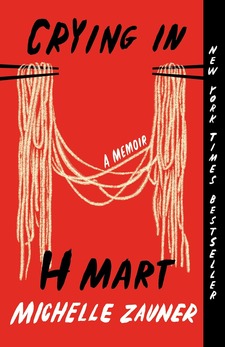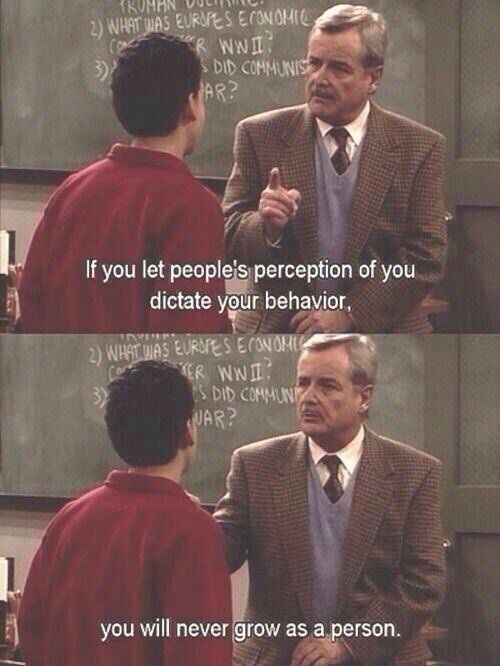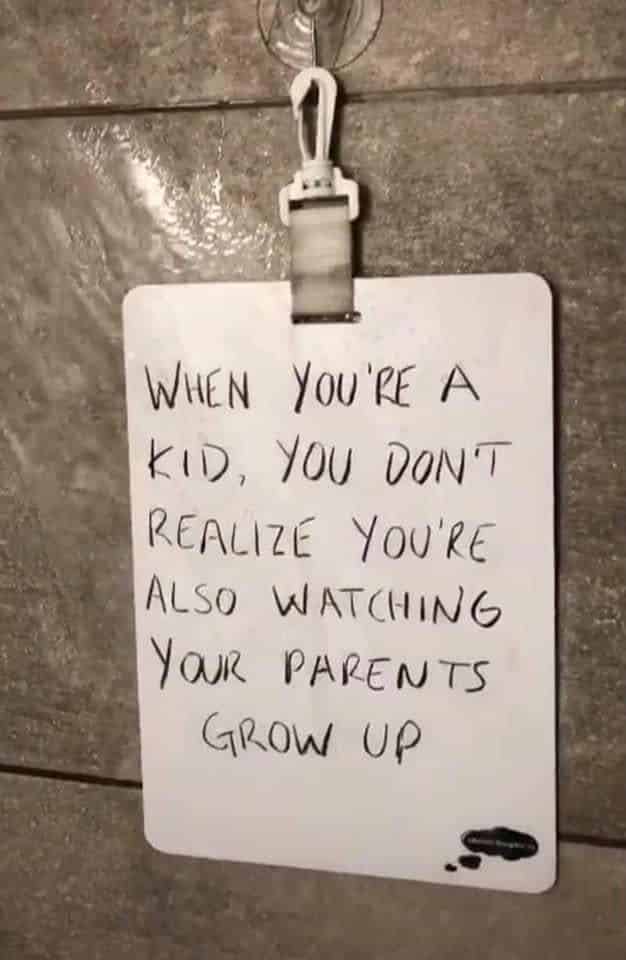Crying In H Mart [Book]

Book Overview: In this exquisite story of family, food, grief, and endurance, Michelle Zauner proves herself far more than a dazzling singer, songwriter, and guitarist. With humor and heart, she tells of growing up one of the few Asian American kids at her school in Eugene, Oregon; of struggling with her mother’s particular, high expectations of her; of a painful adolescence; of treasured months spent in her grandmother’s tiny apartment in Seoul, where she and her mother would bond, late at night, over heaping plates of food. Vivacious and plainspoken, lyrical and honest, Zauner’s voice is as radiantly alive on the page as it is onstage. Rich with intimate anecdotes that will resonate widely, and complete with family photos, Crying in H Mart is a book to cherish, share, and reread.
Post(s) Inspired by this Book:
“I am a child in search of his inner adult, though the truth is that I’m not searching too hard. I don’t recommend anyone doing so. That is the secret, the one people always ask me about when they see me singing and dancing, whistling my way through the grocery store or doing a soft shoe in the checkout line. They say, ‘Pardon me, Mr. Van Dyke, but you seem so happy. What’s your secret?’ What they really want to know is how I have managed to grow old, even very old, without growing up, and the answer is this: I haven’t grown up. I play. I dance with my inner child. Every day.”
Dick Van Dyke, Keep Moving
“Your character defects are not where you’re bad, but where you’re wounded. But no matter who or what caused the wound, it’s yours now and you’re responsible for it. The only person who can bring it up and release it is you. Ultimately, it doesn’t matter where you got your character defects anyway. They’re yours now. You can’t live with a sign around your neck saying, ‘It’s not my fault. My parents were difficult.’ Your only way out of your conundrum is to take total responsibility for those defects.”
Marianne Williamson, The Shadow Effect (Page 171)
“When I was a child, I waited for my mind to grow, for my experiences to accumulate and my choices to solidify, taking shape into the likeness of a person. That person, or that likeness of one, had belonged. I was of that mountain, the mountain that had made me. It was only as I grew older that I wondered if how I had started is how I would end—if the first shape a person takes is their only true shape.”
Tara Westover, Educated
“All kinds of strange things happened to shape you as you were growing up. Your parents pushed you. Or they ignored you. Your mother was overinvolved. Or your father was underinvolved. Your older sister was bossy. Or your younger brother was bratty. Your family had too much money. Or not enough money. But none of these things that happened to you are you. Otherwise you and I would be nothing more than the pretzels fate twisted us into when the dough of the self was still soft.”
Mira Kirshenbaum, The Gift of a Year (Page 149)
Clay Jensen’s Graduation Speech from 13 Reasons Why (Season 4) [2020]
Excerpt: Read Clay Jensen’s Graduation Speech in full from Season 4 of 13 Reasons Why and see why, for Clay, it all comes down to one question…
Read More »Clay Jensen’s Graduation Speech from 13 Reasons Why (Season 4) [2020]
“I think you’re always policing yourself by trying to do what you think would be “cool” and accepted by other people, until you start to figure out who you really want to be. [Growing up] is an ongoing push-and-pull of you being yourself and you performing to what society expects you to be. I think the end product ends up being some kind of composite of these two factors.” ~ John Legend, Cosmopolitan
“Old age is tremendously beautiful, and it should be so because the whole of life moves towards it. It should be the peak. How can the peak be in the beginning? How can the peak be in the middle? But if you think your childhood is your peak, as many people think, then of course your whole life will be a suffering because you have attained your peak – now everything will be a declining, coming down. If you think young age is the peak, as many people think, then of course after thirty-five you will become sad, depressed, because every day you will be losing and losing and losing and gaining nothing. The energy will be lost, you will weaken, diseases will enter into your being, and death will start knocking at the door. The home will disappear, and the hospital will appear. How can you be happy? No, but in the East we have never thought that childhood or youth is the peak. The peak waits for the very end.” ~ Osho, The Art of Living and Dying
“Most of us are like children or young adolescents; we believe that the freedom and power of adulthood is our due, but we have little taste for adult responsibility and self-discipline. Much as we feel oppressed by our parents – or by society or fate – we actually seem to need to have powers above us to blame for our condition. To rise to a position of such power that we have no one to blame except ourselves is a fearful state of affairs.” ~ Scott Peck, The Road Less Traveled
“People may call what happens at midlife ‘a crisis,’ but it’s not. It’s an unraveling – a time when you feel a desperate pull to live the life you want to live, not the one you’re ‘supposed’ to live. The unraveling is a time when you are challenged by the universe to let go of who you think you are supposed to be and to embrace who you are.” ~ Brené Brown, The Gifts of Imperfection
“When we’re born, we have an instinctual understanding of some of the most important basics of life that includes, and goes way beyond, bending at our knees, instead of our lower backs, to pick a beer can up off the floor. We’re born knowing how to trust our instincts, how to breathe deeply, how to eat only when we’re hungry, how to not care about what anyone thinks of our singing voices, dance moves, or hairdos, we know how to play, create, and love without holding back. Then, as we grow and learn from the people around us, we replace many of these primal understandings with negative false beliefs, fear, shame, and self-doubt. Then we wind up in emotional and physical pain. Then we either numb our pain with drugs, sex, booze, TV, Cheetos, etc. Or we settle for mediocrity. OR we rise to the occasion, remember how truly mighty we are, and set out to relearn everything we knew at the beginning all over again.” ~ Jen Sincero, You Are a Badass
“The mediocre mind has no capacity for understanding. It is stuck somewhere near thirteen years in its mental age, or even below it. The person may be forty, fifty, seventy years old – that does not matter, that is the physical age. He has been growing old, but he has not been growing up. You should note the distinction. Growing old, every animal does. Growing up, only a few human beings manage.”
Osho, The Book of Understanding (page 177)






